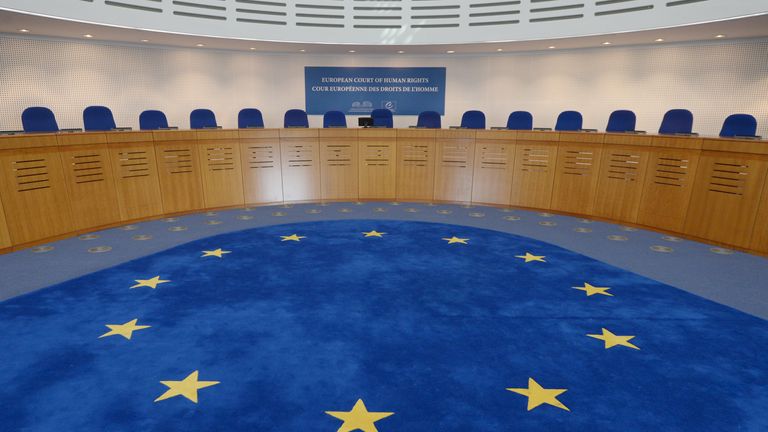Joint statement welcoming judgement on Russia’s failure to protect the privacy of personal data

ILGA-Europe and the AIRE Centre welcome the judgement from the European Court of Human Rights in the case of Bazhenov and others v. Russia
Last week, in the case of Bazhenov and others v Russia, the European Court of Human Rights found a violation of Article 8 (right to private and family life) together with Article 14 (prohibition of discrimination) ECHR.
The applicants in this case are a lawyer who provided assistance in a number of high-profile criminal cases related to hate crimes against individuals, and a same-sex couple. The case concerns the disclosure of the applicants’ personal data, including their names, addresses and information about their sexual orientation, on openly homophobic public pages on social networks.
The applicants argued that this exposed them to elevated risks of harassment and made them fear for their lives and health, for the safety of their relatives and employees and for their professional activities. As such, they complained that the national authorities failed in their obligation to ensure effective respect for their private lives (Article 8 ECHR) and protect them from discrimination (Article 14 ECHR). They also complained under Article 13 ECHR that they had no effective remedy as the authorities failed to open a criminal case and conduct an effective investigation to respond adequately to those homophobic incidents.
Sharing of personal information should be a personal choice
ILGA-Europe together with the AIRE Centre submitted a third-party intervention in this case, stating that the sharing of personal information, including sexual orientation, should be an individual’s choice and that there should be safeguards to prevent the disclosure of such personal data. Moreover, national authorities have a positive obligation to conduct an effective investigation into an alleged interference with an individual’s private life, and a person’s sexual orientation should form part of the authorities’ considerations. Finally, we provided an analysis of the risks of discrimination, convictions by authorities and hate crimes that LGBTI individuals face through the non-consensual sharing of information and personal data.
The Court found that the authorities had indeed failed to offer adequate protection in respect of the applicants’ private lives and to protect them from discrimination. Importantly, the Court considered that “the domestic authorities were confronted with prima facie indications that the (…) disclosure of the applicant’s private data without their consent, including information about their sexual orientation, were driven by discriminatory attitudes against LGBTI community”. The Court found that this required an “effective investigation capable of elucidating the homophobic motive behind the breach of the applicants’ privacy and of identifying and, if appropriate, adequately punishing those responsible”.
A particularly vulnerable group, needing heightened protection
Furthermore, the Court recalled that “gender and sexual minorities require special protection from hateful and discriminatory speech because of the marginalisation and victimisation to which they have historically been, and continue to be, subjected.” It noted in this respect that the Russian LGBTI community can be regarded as a particularly vulnerable group, needing heightened protection from stigmatising statements.
Therefore, the Court ruled that domestic authorities had failed to discharge their positive obligation to respond adequately to the non-consensual dissemination of the applicants’ private data, including the information on their sexual orientation, by private individuals, and to investigate in an effective manner whether the dissemination of the data in question had been motivated by homophobic attitudes.
Welcoming the judgement, ILGA-Europe’s Senior Strategic Litigation Officer, Marie-Hélène Ludwig said: “This is a strong judgment in which the Court makes clear that States have a positive obligation to ensure respect for the right to private life, even when this concerns relationships between individuals. We welcome the Court’s observation that preventing and investigating the non-consensual dissemination of private data on one’s sexual orientation is particularly important in view of the vulnerability and risks faced by the LGBTI community in Russia at the moment.”
Last week, the Court also found violations of Article 8 (right to respect for private and family life) and Article 10 (freedom of expression) ECHR in the case of Klimova and Others v. Russia. The case concerned the applicants’ convictions for an administrative offence and/or the blocking of access to their websites or webpages on social networking sites, including one of the oldest and largest LGBTI websites in Russia, for “promoting homosexuality among minors”. The Court concluded that there was an interference with the applicants’ right to freedom of expression. One of the applicants also complained that the security services collected user data related to her personal social networking account and to the social networking community administered by her. The Court found that this amounted to an interference with the applicant’s right to respect for her private life.